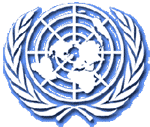
| Climate Change - A Human Rights Issue | 09 April 08 |
 The Human Rights Council of the UN has officially recognized climate change as a human right issue. The Human Rights Council of the UN has officially recognized climate change as a human right issue.The Council passed the resolution put forward from the Maldives, Comoros, Tuvalu, Micronesia and other island states. The resolution identifies climate changes as a global problem - posing an immediate and far-reaching threat to people, their livelihoods and welfare. Costal areas and small island states will be affected by rising sea levels. Experts say that global warming could cause intense storms, droughts and floods - restricting access to housing, food and clean water. "The very important aspect of the human dimension is sometimes lost. Scientific and economic issues have been taken into account," said Maldives Foreign Minister Abdulla Shahid. "It is time to highlight the human face of climate change." The UN proposal called for a detailed analytical study of the relationship between climate change and human rights to be conducted by the Office of the U.N. High Commissioner for Human Rights. An independent expert will be appointed to assess countries' human rights obligations linked to safe drinking water and sanitation. Canada diplomat Sarah Geh stressed this will not create a human right to water. The Canadian Government has been strongly opposed to recognizing water as an international human right. The UN High Commission for Human Rights Louise Arbur, formerly of the Canadian Supreme Court, has resigned before her second term amid conjecture the Canadian government did not support her continuing as High Commissioner. View Human Rights Council 7th Session Resolution: Human rights and climate change (revised draft) (PDF) View March 28, 2008 Reuters article View March 28, 2008 CanWest News article View April 2, 2008 The Toronto Star article Sources: UN, Reuters, Canada.com, The Star |
|
 Print version Print version |
Top |
